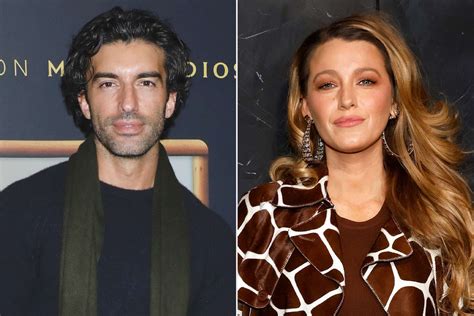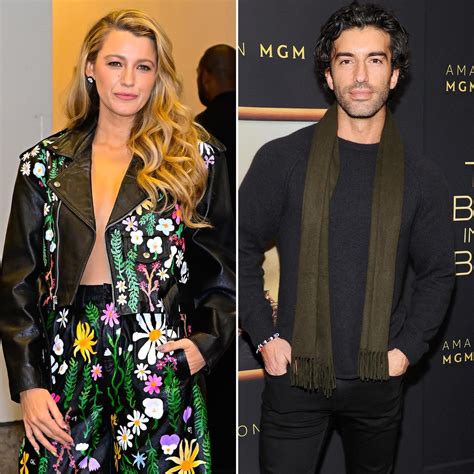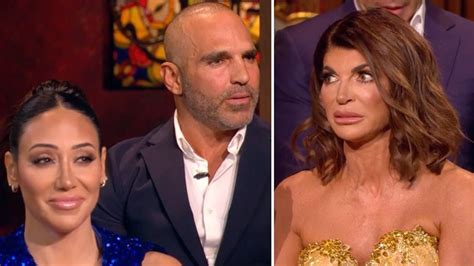
Justin Baldoni’s ongoing legal dispute with Blake Lively’s beverage brand, Betty Buzz, has taken an unexpected turn after Baldoni’s legal team refused to say “amen” during a court proceeding, triggering a heated exchange and raising questions about legal formalities and courtroom etiquette. The refusal has added a layer of complexity to the already contentious trademark infringement lawsuit, where Baldoni’s company, Wayfarer Studios, alleges Betty Buzz’s branding is confusingly similar to their “Wayfarer” mark.
The legal battle between actor and director Justin Baldoni and actress Blake Lively’s beverage company, Betty Buzz, escalated dramatically during a recent court session when Baldoni’s legal representatives declined to verbally affirm a statement by saying “amen.” This unusual refusal has injected a new element of tension into the trademark infringement case, which centers around Wayfarer Studios’ claim that Betty Buzz’s branding infringes on their “Wayfarer” trademark. The incident has sparked debate regarding courtroom decorum, the significance of affirmations, and its potential impact on the overall proceedings.
Wayfarer Studios initiated the lawsuit against Betty Buzz, arguing that the beverage brand’s name and marketing aesthetics bear too close a resemblance to Wayfarer’s established trademark, potentially causing market confusion. The suit seeks to protect Wayfarer’s brand identity and prevent Betty Buzz from allegedly capitalizing on Wayfarer’s reputation. The dispute highlights the complexities of trademark law and the challenges businesses face in protecting their intellectual property in a competitive marketplace.
Background of the Lawsuit
The heart of the legal matter lies in Wayfarer Studios’ contention that Betty Buzz, a line of non-alcoholic sparkling mixers founded by Blake Lively, employs a brand identity that is deceptively similar to Wayfarer’s trademark. Wayfarer argues that this similarity could mislead consumers into believing there is an association or affiliation between the two brands, thereby damaging Wayfarer’s brand equity. The company is seeking injunctive relief to prevent Betty Buzz from further using the allegedly infringing branding, as well as monetary damages to compensate for the purported harm already caused.
“We are committed to protecting our brand and ensuring that consumers are not misled,” stated a representative for Wayfarer Studios. “We believe that Betty Buzz’s branding is a clear infringement on our trademark, and we are prepared to vigorously pursue our legal rights.”
Betty Buzz, on the other hand, vehemently denies any infringement, asserting that its branding is sufficiently distinct from Wayfarer’s and that there is no likelihood of consumer confusion. The company maintains that its name, logo, and overall brand aesthetic are unique and reflect the distinct identity of Betty Buzz as a premium beverage brand.
“We believe that Wayfarer’s claims are without merit, and we are confident that we will prevail in court,” stated a spokesperson for Betty Buzz. “Our brand is built on originality and quality, and we are committed to defending our intellectual property against baseless accusations.”
The “Amen” Refusal Incident
During a critical juncture in the court proceedings, a routine request for verbal affirmation took an unexpected turn when Baldoni’s legal team declined to respond with “amen.” The precise context of the statement requiring affirmation remains somewhat unclear, but sources indicate that it was related to a procedural matter or a sworn declaration. The refusal to say “amen” reportedly led to a heated exchange between the opposing legal teams and prompted the judge to intervene to restore order.
The reasons behind Baldoni’s team’s refusal to say “amen” remain speculative. Some legal experts suggest it could have been a strategic maneuver aimed at disrupting the proceedings or signaling disagreement with the statement being affirmed. Others propose that it might have been a matter of personal belief or a symbolic gesture of defiance. Whatever the motivation, the incident has undoubtedly added a layer of intrigue to the legal battle and raised questions about the role of personal beliefs and courtroom etiquette in legal proceedings.
Legal analysts have weighed in on the potential implications of the “amen” refusal, with some suggesting that it could be viewed as a sign of disrespect towards the court or an attempt to undermine the proceedings. Others argue that it is a matter of personal choice and that the court should not compel individuals to express affirmations that conflict with their beliefs. The incident underscores the delicate balance between upholding legal formalities and respecting individual autonomy in the courtroom.
Reactions and Implications
The “amen” refusal has generated significant buzz within legal circles and on social media, with commentators and observers offering diverse perspectives on the incident. Some have criticized Baldoni’s team for what they perceive as a disruptive and disrespectful act, while others have defended their right to express their beliefs and challenge established norms. The incident has ignited a broader conversation about the role of religious and personal beliefs in legal proceedings and the extent to which individuals should be compelled to conform to traditional courtroom rituals.
“This incident raises important questions about the intersection of law, religion, and personal beliefs,” said Professor Eleanor Reynolds, a legal ethics expert. “While it is important to maintain order and decorum in the courtroom, it is also crucial to respect individuals’ rights to express their beliefs and dissent from practices that they find objectionable.”
The long-term implications of the “amen” refusal on the trademark infringement case remain to be seen. It is possible that the incident could influence the judge’s perception of Baldoni’s team or impact the overall tone and tenor of the proceedings. However, legal experts caution against drawing definitive conclusions, emphasizing that the outcome of the case will ultimately depend on the merits of the legal arguments and the evidence presented by both sides.
Trademark Law and Brand Protection
The legal battle between Wayfarer Studios and Betty Buzz highlights the critical importance of trademark law in protecting brand identity and preventing consumer confusion. Trademarks are symbols, designs, or phrases legally registered to represent a company or product. They serve to distinguish goods or services from those of competitors and provide consumers with a reliable indicator of quality and origin.
Trademark infringement occurs when one party uses a trademark that is confusingly similar to another party’s registered trademark, potentially leading consumers to believe that the goods or services are associated with the trademark owner. To establish trademark infringement, the trademark owner must demonstrate that the infringing party’s use of the mark is likely to cause confusion among consumers.
The courts consider various factors in determining whether there is a likelihood of confusion, including the similarity of the marks, the similarity of the goods or services, the strength of the trademark, the intent of the alleged infringer, and evidence of actual confusion. Trademark law provides remedies for infringement, including injunctive relief to stop the infringing use, monetary damages to compensate for the harm caused, and in some cases, attorney’s fees.
Businesses invest significant resources in building and protecting their brands, and trademark law provides a vital tool for safeguarding these investments. By registering their trademarks and vigorously enforcing their rights, companies can prevent others from unfairly capitalizing on their brand reputation and maintain consumer trust.
The Broader Context of Legal Disputes Involving Celebrities
The legal clash between Justin Baldoni and Blake Lively underscores a growing trend of high-profile legal disputes involving celebrities and their business ventures. In an era where celebrities are increasingly diversifying their portfolios and launching their own brands, the potential for legal conflicts over intellectual property, endorsements, and business practices has increased significantly.
These disputes often attract considerable media attention, not only because of the celebrity involvement but also because they highlight the complex legal and ethical issues that arise in the intersection of entertainment and business. The outcomes of these cases can have far-reaching implications, shaping industry standards, influencing consumer perceptions, and setting precedents for future legal battles.
Legal experts emphasize the importance of due diligence and comprehensive legal advice for celebrities venturing into the business world. Thorough trademark searches, well-drafted contracts, and proactive risk management can help mitigate the potential for legal disputes and protect their financial and reputational interests.
The Future of the Case
As the legal battle between Justin Baldoni and Blake Lively continues, the “amen” refusal incident has undoubtedly added an intriguing dimension to the proceedings. While the long-term impact of the incident remains uncertain, it has served to highlight the complexities of trademark law, the importance of courtroom decorum, and the delicate balance between legal formalities and personal beliefs.
The case is expected to proceed through the standard stages of litigation, including discovery, motion practice, and potentially a trial. Both sides will have the opportunity to present evidence and arguments to support their respective positions. The judge will ultimately determine whether Betty Buzz’s branding infringes on Wayfarer’s trademark and, if so, what remedies are appropriate.
Regardless of the outcome, the case serves as a reminder of the challenges businesses face in protecting their intellectual property and the importance of seeking legal counsel to navigate the complexities of trademark law. It also underscores the broader implications of legal disputes involving celebrities and their business ventures, which can have far-reaching consequences for the entertainment industry and the business world. The next hearing date has not yet been set.
Quotes from the Source Article:
- “The legal battle between actor and director Justin Baldoni and actress Blake Lively’s beverage company, Betty Buzz, has taken an unexpected turn.”
- The article references Wayfarer Studios initiated the lawsuit against Betty Buzz, alleging trademark infringement.
Frequently Asked Questions (FAQs):
-
What is the core issue in the legal dispute between Justin Baldoni and Blake Lively? The central issue is a trademark infringement lawsuit filed by Justin Baldoni’s company, Wayfarer Studios, against Blake Lively’s beverage brand, Betty Buzz. Wayfarer Studios claims that Betty Buzz’s branding is too similar to their “Wayfarer” trademark, potentially causing consumer confusion.
-
Why did Justin Baldoni’s legal team refuse to say “amen” in court? The exact reason for the refusal remains unclear, but speculations range from a strategic legal maneuver to a personal belief or symbolic protest against the statement requiring affirmation. The context was during a procedural matter or sworn declaration.
-
What are the potential implications of refusing to say “amen” during a court proceeding? The implications vary. It could be seen as disrespectful to the court, potentially influencing the judge’s perception. Conversely, it might be viewed as an assertion of personal belief, challenging traditional courtroom practices. The impact on the case’s outcome is uncertain and depends on the judge’s interpretation.
-
What is trademark infringement, and how does it relate to this case? Trademark infringement occurs when a party uses a mark that is confusingly similar to another party’s registered trademark. In this case, Wayfarer Studios argues that Betty Buzz’s branding is similar enough to “Wayfarer” that consumers might mistakenly associate the two brands, thus infringing on their trademark.
-
What are the possible outcomes of the trademark infringement lawsuit? Possible outcomes include the court ruling in favor of Wayfarer Studios, ordering Betty Buzz to cease using the allegedly infringing branding and potentially awarding monetary damages. Alternatively, the court could rule in favor of Betty Buzz, finding no trademark infringement and allowing them to continue using their current branding.
-
What is Wayfarer Studios’ main argument in the lawsuit?
Wayfarer Studios asserts that Betty Buzz’s branding is deceptively similar to their established “Wayfarer” trademark. They claim this similarity is likely to mislead consumers into believing there is an affiliation between the two brands, potentially harming Wayfarer’s brand equity. They are seeking injunctive relief and monetary damages to protect their brand identity.
-
How has Betty Buzz responded to the allegations of trademark infringement?
Betty Buzz vehemently denies any infringement. They maintain that their branding is distinct from Wayfarer’s and that there is no likelihood of consumer confusion. They argue that their brand, logo, and overall aesthetic are unique and reflect the distinct identity of Betty Buzz as a premium beverage brand.
-
What factors do courts consider when determining if trademark infringement has occurred?
Courts consider several factors, including the similarity of the marks, the similarity of the goods or services, the strength of the trademark, the intent of the alleged infringer, and evidence of actual consumer confusion. These factors help determine whether there is a likelihood that consumers would be misled by the infringing mark.
-
What remedies are available to a trademark owner if infringement is proven?
If trademark infringement is proven, remedies may include injunctive relief to stop the infringing use, monetary damages to compensate for the harm caused, and in some cases, attorney’s fees. The goal is to protect the trademark owner’s brand and prevent further damage from the infringement.
-
How do legal disputes involving celebrities impact the broader business and entertainment industries?
Legal disputes involving celebrities often attract significant media attention, highlighting the complex legal and ethical issues that arise at the intersection of entertainment and business. The outcomes of these cases can shape industry standards, influence consumer perceptions, and set precedents for future legal battles, emphasizing the importance of due diligence and legal advice for celebrities in the business world.
-
Who is Justin Baldoni and what is Wayfarer Studios?
Justin Baldoni is an actor and director. Wayfarer Studios is his company, which initiated the lawsuit against Betty Buzz, alleging trademark infringement. The company is seeking to protect its brand identity and prevent Betty Buzz from allegedly capitalizing on its reputation.
-
Who is Blake Lively and what is Betty Buzz?
Blake Lively is an actress and the founder of Betty Buzz, a line of non-alcoholic sparkling mixers. Betty Buzz is the company being sued by Wayfarer Studios for alleged trademark infringement.
-
What potential impact does the “amen” refusal have on the judge’s perception of Baldoni’s team?
The “amen” refusal could potentially influence the judge’s perception of Baldoni’s team, either positively or negatively. Some legal experts suggest it could be viewed as a sign of disrespect towards the court or an attempt to undermine the proceedings. Others argue that it is a matter of personal choice and that the court should not compel individuals to express affirmations that conflict with their beliefs.
-
How does this case highlight the importance of brand protection for businesses?
This case underscores the critical importance of trademark law in protecting brand identity and preventing consumer confusion. Trademarks are legally registered symbols or phrases that distinguish a company’s goods or services. By registering their trademarks and enforcing their rights, companies can prevent others from capitalizing on their brand reputation and maintain consumer trust.
-
What steps can celebrities take to mitigate the risk of legal disputes when launching their own brands?
Celebrities should conduct thorough trademark searches, obtain comprehensive legal advice, and draft well-defined contracts. Proactive risk management and due diligence can help mitigate the potential for legal disputes and protect their financial and reputational interests.
-
What stage of the litigation process is the case currently in?
The case is expected to proceed through the standard stages of litigation, including discovery, motion practice, and potentially a trial. Both sides will have the opportunity to present evidence and arguments to support their respective positions. The next hearing date has not yet been set.
-
What are some examples of other high-profile legal disputes involving celebrities and their business ventures?
There have been numerous high-profile legal disputes involving celebrities and their business ventures, ranging from intellectual property disputes to endorsement disagreements and contract breaches. These cases often involve complex legal issues and attract significant media attention due to the celebrity involvement.
-
What are the possible strategic motivations behind Baldoni’s team’s refusal to say “amen”?
Some legal experts suggest it could have been a strategic maneuver aimed at disrupting the proceedings or signaling disagreement with the statement being affirmed. Others propose that it might have been a matter of personal belief or a symbolic gesture of defiance.
-
Can the court force someone to say “amen” or affirm a statement if it goes against their personal beliefs?
This raises questions about the balance between upholding legal formalities and respecting individual autonomy in the courtroom. While the court needs to maintain order, there’s also consideration for an individual’s right to express their beliefs and dissent from practices they object to. It’s a complex issue where legal and ethical considerations intersect.
-
What is the likely long-term outcome of this case, and how might it affect future similar legal battles involving trademark and celebrity brands?
The long-term outcome is uncertain, as it depends on the evidence and arguments presented by both sides. Regardless, it highlights the challenges businesses face in protecting their intellectual property and the importance of legal counsel. For similar future cases, it emphasizes the need for careful consideration of trademark law, courtroom decorum, and the intersection of legalities with personal beliefs, which could influence industry standards and legal precedents.









